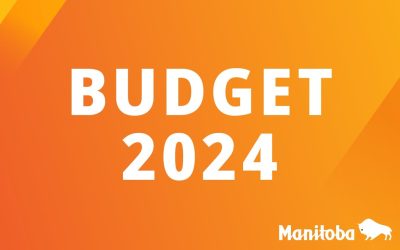What would your reaction be if you learned the countries of the world all decided everyone must drive the same car and this new car must cost at least $50,000?
In this hypothetical situation, the rationale given for this decision is that some countries were able to make cars more inexpensively than other countries, and this was not fair to the high-cost countries that were losing market share to low-cost countries. In addition, high-cost countries demanded that every new car have leather seats whether the consumer wanted them or not. The reason for insisting upon high-cost leather seats was because it was “unfair” to leather tanners union workers to be undercut by producers of cheaper cloth seats.
As absurd as the above may seem, this type of reasoning is behind the demand of major European high-tax countries that low-tax countries increase their taxes. It would have the same damaging impact on workers in low-tax countries and customers worldwide as in the auto example.
The European countries have claimed that relatively low-tax countries, such as the U.S., Switzerland and many smaller countries, are engaged in “unfair tax competition.” The argument that tax competition is bad stems from the belief government spending is superior to private spending, and that tax competition will undermine the ability of governments to raise taxes and enlarge the welfare state.
Public choice economists, such as Nobel Prize winner James Buchanan and others, have argued that competition between governments is beneficial because it reduces wasteful government spending and forces a certain discipline on politicians. Among their arguments is that politicians invariably tend to spend taxpayer money on projects that will benefit the politician directly or his or her re-election chances, and that this spending results in little or no benefit to the citizens.
A paper just published by the highly respected National Bureau for Economic Research (NBER), titled: “Why Europe should love tax competition — and the U.S. even more so,” by Eckhard Janeba and Guttorm Schjelderup, looks carefully at both sides of the question and concludes the weight of the evidence is on the pro-competition side.
The authors looked at the effects of tax competition on both parliamentary democracies (which is the common European form of government) and on the presidential-congressional systems (such as the U.S. has). Their research showed that increasing tax competition is likely to improve voter welfare, because nonproductive government spending, including payments and benefits to politicians, decreases.
Previous studies have shown parliamentary democracies have higher taxes, more government spending, and higher levels of government waste than the presidential-congressional democracies. This fact helps explain why the Europeans oppose tax competition while the Americans — specifically the Bush administration — clearly support tax competition. However, the new NBER study shows that even the European parliamentary democracies would be better off with more rather than less tax competition.
It is well known that politicians throughout the world try to increase government spending in their own districts while spreading the costs of this increase among the voters of every other district. Politicians who are very successful with this maneuver, like Sen. Robert Byrd, West Virginia Democrat, usually find it easy to get re-elected even though the real economic benefits of all this local spending (often known as “pork”) are minimal — while others pay most of the costs. This is one of the major reasons government spending tends to be higher than optimal in democracies, and, in particular, parliamentary democracies.
As a result, even though tax competition might indeed reduce government taxation and spending, the evidence shows the reduction in destructive spending more than offsets any reduction in productive spending.
Because the U.S. and other more fiscally responsible countries have rejected the European demands that “harmful” tax competition be stopped, the Europeans are now trying to get other countries to report interest earnings by their citizens outside of their own countries. To go back to the automobile analogy, this is the equivalent to countries demanding to know what their citizens paid for a foreign-produced automobile, even when it was not imported to the home country, so governments can browbeat their citizens.
Even though the administration has rejected the more extreme European information request, the IRS is still considering a mildly watered-down version of the same Big Brotherism and is holding hearings this week. It is surprising that the IRS continues to consider information reporting, given that a wide spectrum of public policy, civil liberties, and industry organizations unanimously opposed the proposal.
The new NBER study is further evidence that the underlying economic excuse for such information sharing, to prevent tax competition, is not even in the interests of its proponents, let alone the U.S. national interest.
Richard W. Rahn is an adjunct scholar with the Cato Institute. This article was published in the Washington Times, Dec. 5, 2002.


